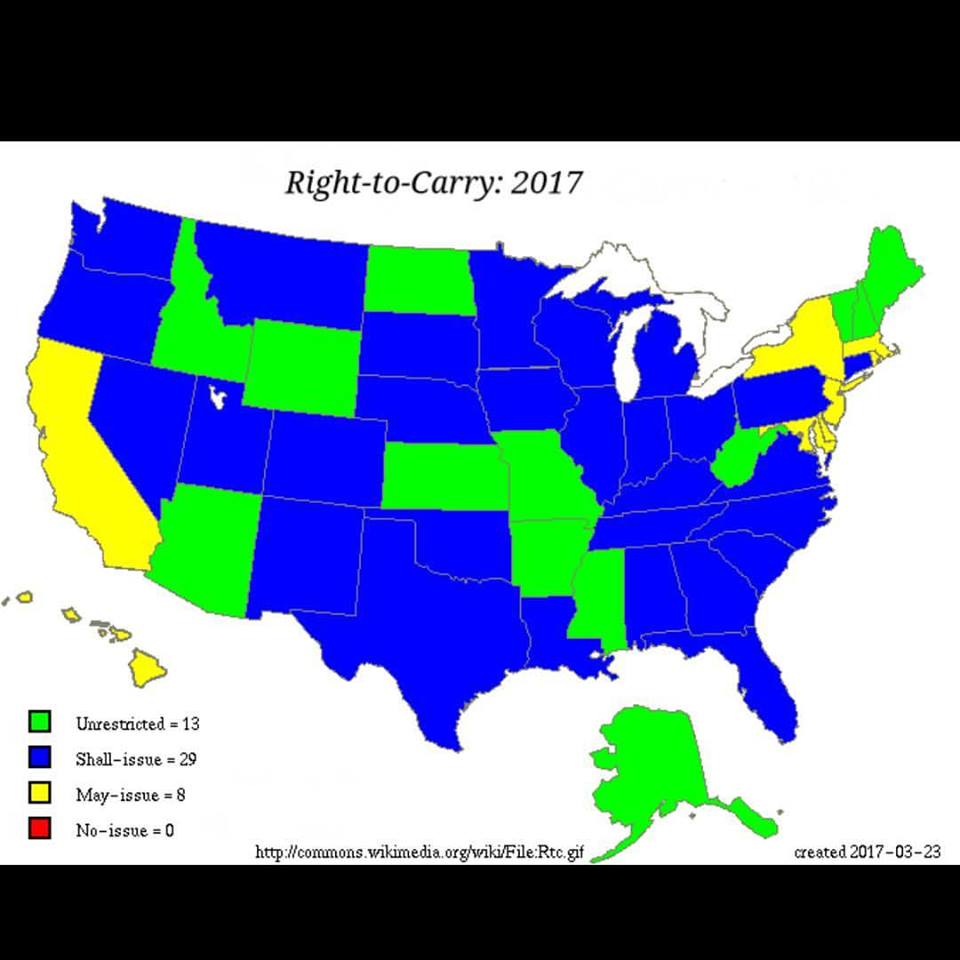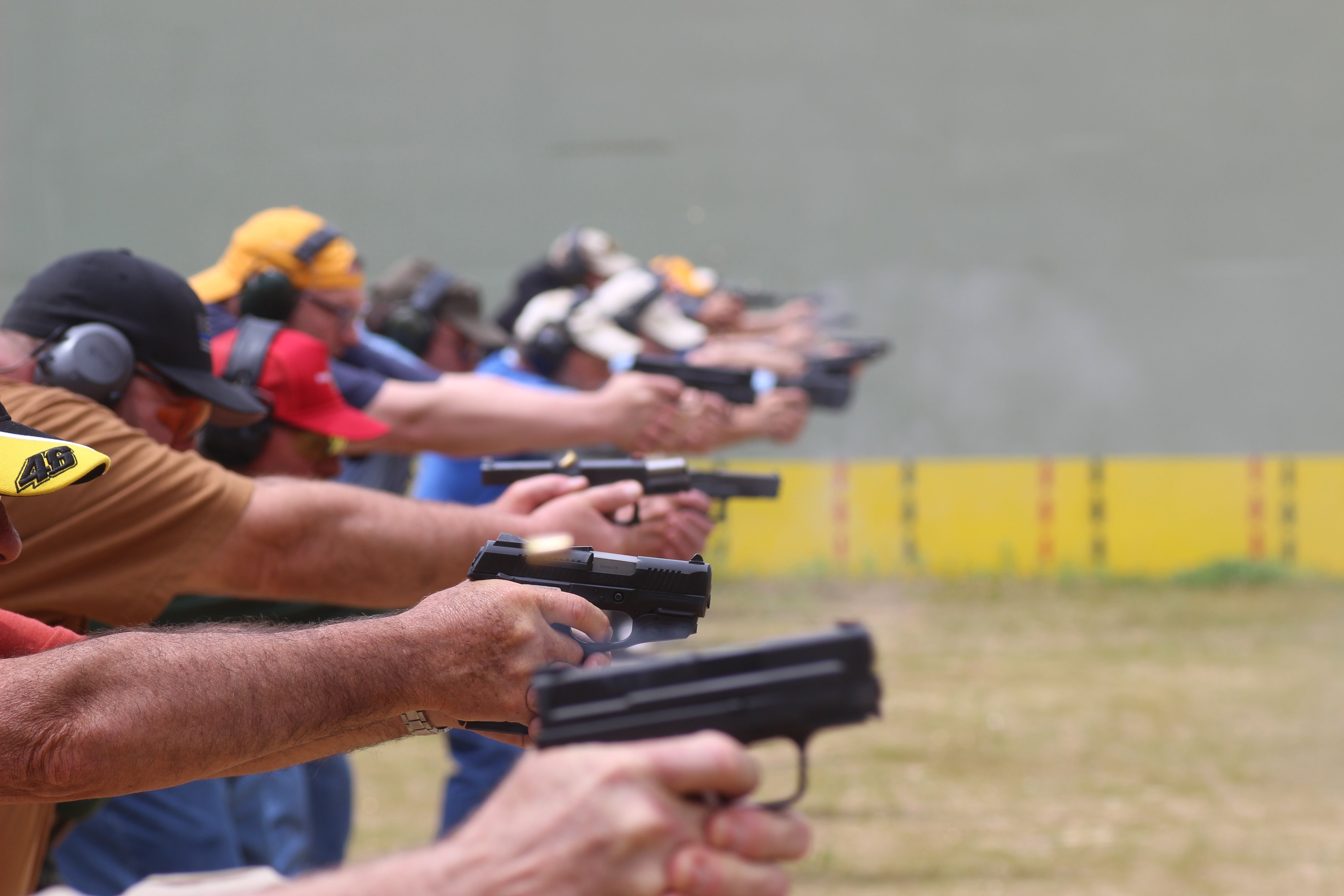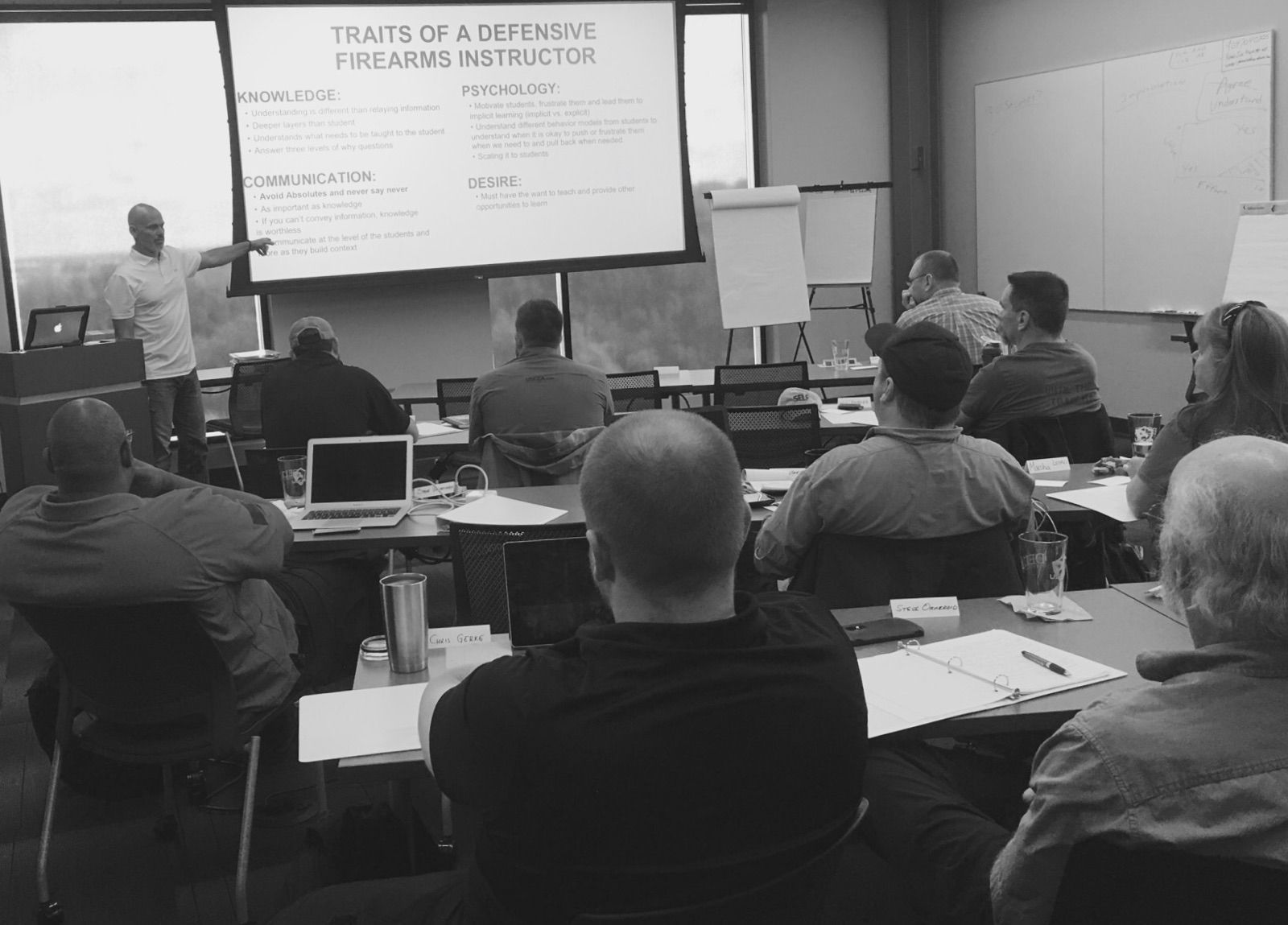Originally published HERE on 12/1/2017.

A lot of people in the Firearms Community don’t seem to realize that “National Reciprocity” is a conversation to be had with its own potential set of Compromises. There is a pretty straightforward and simply worded bill in the US House of Representatives right now (as of 12/1/17, H.R. 38) that many people interested in re-establishing the full breadth of the Constitutional Right to Keep and Bear Arms are excited about. Unfortunately, I have little faith that such a simple and straightforward change to the law will ever take place.
Do you really believe that States like CA and MA will instantly allow residents of “Constitutional Carry” States like VT and AZ carry concealed firearms when visiting? I don’t.
Do you really think the Federal Government is going to throw a magic switch and all the legal gun owners in the dozen “Constitutional Carry” States are going to instantly be able to legally carry in Manhattan and Los Angeles? I don’t.
Admittedly, AZ and NYC are extremes… but, the middle areas of Concealed Carry Law in the US are really just as muddied. We have a pile of states with no live fire training requirement towards one end and several we’re-mostly-just-kidding “May Issue” States towards the other. Closer to the true middle, we have the “shall issue” States with live fire training requirements. Some are like Florida, with very liberal (don’t get triggered, that was a small “l”) class requirements while others are more like Texas (a State that didn’t even offer the option for Concealed Carry as recently as the mid-1980s) that have very specific mandated training requirements. Working through compromises is something that our Legislature hasn’t been very good at over the past decade… especially on issues as politically and emotionally charged as Gun Rights, and there are very few as charged as Gun Rights! The safe money is on “a bill never gets to the President’s desk”.

If there is a compromise struck and National Reciprocity becomes a thing, the biggest fear in the Firearms Community is that it comes at the cost of a National Training Requirement. At the whackier end, the fear is based on the idea that the Federal Government is simply pushing this forward as a means to the end of coming door to door and taking all the guns. More rational people see the establishment of a National Training Requirement as an obvious affront to the Second Amendment (and all recent Federal Court rulings on its application to individuals: Heller, McDonald, etc.) and fear the possibility that such an establishment would interfere with or roll back the incredible progress that has been made at the State level in regard to CCW over the past 25 years. That progress includes a dozen States that now allow carry without a permit. Many have expressed concerns about how the Federal Government might pressure States to comply. Would Federal Funding by withheld from States that resisted? If so, what funding? Would it be funding to something that could be chosen politically to imply negative social impact from increased carrying of firearms such as Health Care or Law Enforcement?
Personally, my concern includes that last point but is better expressed as: I don’t trust the Federal Government to establish a training program that is worthwhile. I don’t think that there is currently a single State established program that is adequate, nor do I feel that the broadly accepted NRA Basic Pistol Class is appropriate preparation for being responsibly armed in public. I have little faith that (for good and bad reasons) any Government Organization would ever put such a program into place. Before any of Anti-Gunners in the audience get too excited: I’ve long lobbied for no training requirement and no permit system for those who would be responsibly armed in public. This is known as “Constitutional Carry”, summarized as: If someone can legally own a gun, they can legally carry it. I believe that the drive for training should come from the firearms owning public and be provided by the private sector, including independent instructors, small business, large corporations, not-for-profits and national organizations. I also believe that the establishment of sub-standard training as “required” has resulted in a relatively low level of training becoming far too acceptable, with both false confidence and complacency in the much of the Concealed Carry Community. The fact is that most gun owners see low training requirements as a Political Win, which it is, and feel conflicted about expressing much interest in raising the standards (or even daring to comment publicly that current standards are low).
I’ve been in the Firearms Industry for over twenty years and engaged in the training field full time for fifteen. I’ve taught classes all over the world and provided training to many law enforcement agencies, military units and security companies. For over a decade, I have certified instructors to teach my company’s programs to average citizens and I’ve collaborated with several organizations to develop and implement live fire training programs aimed at preparing average people to defend themselves or those that they care about with firearms in the public space. I don’t know very many people in our community that would trust the Federal Government to create or administer a mandatory training program for National CCW Permits. I don’t know many people who think that the NRA’s existing programs (the current de facto standard) would be anything more than a “safe choice” from a Gun Rights perspective.

What do I hope for? At best, I would hope that National Reciprocity passes with the establishment of a loosely defined set of requirements to obtain a National Carry Permit(NCP) in a way that does not interfere with the current State Level Programs. Requirements such as those that the States of Florida or Colorado currently have in regard to the issuance of CCW Permits are the type of thing I’m talking about… requirements that include Live Fire, but do not specify the details of the class. In the case of a person who possesses a State Issued Permit based on requirements that meet or exceed the NCP Requirements would automatically be issued an NCP or be granted the benefits of one (the latter being the much more efficient and preferred option). Why this set-up? Let’s face it: Most People who currently carry guns regularly wouldn’t actually benefit very much from “National Reciprocity” even as it is currently described in H.R. 38. Start a poll at virtually any pro-guns location and you’re going to find that very few people would choose “I often find myself in States where I can’t carry because my CCW Permit isn’t honored.” One last thing for those excited about National Reciprocity to consider: What if your State decided to abdicate control over the process to the Federal Government should a NCP exist by shutting the existing permit program down?
Emotionally and Politically, National Reciprocity is a hug battle won for Our Side, but that doesn’t mean it’s worth losing focus on the War on Guns that we’ve been winning ever since the backlash that the Legislature felt after the institution of the 1994 Assault Weapons Ban. The fight at the State Level is really where I believe the focus should still be. National Reciprocity is being looked at like it is an end run around State Restrictions… but, it may just be distracting us. What good is the right to carry a gun in a State that restricts the possession of the type of gun you carry, the type of ammunition you rely on or the magazines you load? Is National Reciprocity really a win if it replaces the current system in your State that serves you well, increases costs and extends waiting times? The fact is that “National Reciprocity” isn’t even on the table for a RKBA Purist, as the whole permitting process undermines the Constitutionally Protected Right to Keep and Bear Arms. What we should be talking about is National Right to Carry, not a new or expanded version of the current infringement.
Every year since 2010 I have made a cross country drive as part of my “Training Tour” and every year I find myself in States where I cannot carry legally because of reciprocity issues. I would personally benefit from any possible version of National Reciprocity at least as much as just about any one else… but, I’m still very skeptical and only very cautiously hopeful that we’ll see an acceptable form of it anytime soon.
-RJP
Edited 12/4/17 to add: As I expressed concern over in the original piece, the changes to the simple language of H.R.38 are already happening. Here’s an update from Congressmen Thomas Massie (U.S. Representative, Kentucky, 4th District, Republican):
ALERT: Feinstein/Schumer sponsored gun legislation that amends the “Brady bill” will be added to Concealed Carry Reciprocity bill (HR 38) in the House this week.
As Chairman of the Second Amendment Caucus, I’m blowing the whistle on the swamp. Last week, Republicans in the House fast tracked through committee HR 4477, a gun bill titled “fix-NICS.” The Senate version of this bill is cosponsored by Senator Dianne Feintstein and Senator Chuck Schumer and it will send $625 million over 5 years to states to expand the national background check database. The bill will also advance former President Obama’s agenda of pressuring every branch of the administration (such as the Veteran’s Administration) to submit thousands of more names to the NICS background check database to deny gun purchases. The House bill is identical in every way to the Senate bill except the House bill will also commission a study on bump-stocks.
What you don’t know, and what virtually no one in Washington wants you to know, is that House leadership plans to merge the fix-NICS bill with popular Concealed Carry Reciprocity legislation, HR 38, and pass both of them with a single vote. Folks, this is how the swamp works. House leadership expects constituents to call their representatives demanding a vote on the reciprocity bill, when in fact the only vote will be on the two combined bills.
How fast did Fix-NICS, HR 4477, move through the Judiciary Committee? This bill broke the previous records for fast track legislation. It was voted out of committee within hours of being introduced in the House. Check the dates on this link: https://www.congress.gov/…/115th-congr…/house-bill/4477/text . That means the text of the bill wasn’t even discoverable by the public on congress.gov until after the bill passed out of committee! The text was however available over in the Senate where you will find Senator Diane Feinstein and Senator Chuck Schumer are cosponsors. https://www.congress.gov/…/115t…/senate-bill/2135/cosponsors
If that’s not odd enough, consider this: the fix-NICS bill was introduced in the House by a Democrat two weeks ago. https://www.congress.gov/…/115th-congr…/house-bill/4434/text . But, in a very unusual move, the bill was re-introduced verbatim by a Republican two weeks later, with language added to it to commission a bump-stock study. Six Republicans in Judiciary Committee weren’t persuaded by the switcheroo, and voted No. However, because every Democrat voted yes and some Republicans voted yes at the urging of the Chairman, the bill made it out of committee. The deed will be complete this week when the bill is quietly added to the Reciprocity bill, HR 38, and passed without the knowledge of those who would oppose the legislation if they knew what was in it.
To recap, what are some clues that you should be concerned with the fix-NICS bill?
(1) The first sentence after the title of the bill reads “Section 103 of the Brady Handgun Violence Prevention Act (34 U.S.C. 40901) is amended…”
(2) Senators Dianne Feinstein and Chuck Schumer are cosponsors in the Senate.
(3) It’s being rammed through, without a hearing, in a very nontransparent process, and it will be passed by attaching it to the popular concealed carry reciprocity bill which already has enough votes to pass on its own.
(4) It spends over half a billion dollars to collect more names to include in a list of people who will never be allowed to own a firearm.
(5) It compels administrative agencies, not just courts, to adjudicate your second amendment rights.
In my opinion, #5 is the biggest problem. The bill encourages administrative agencies, not the courts, to submit more names to a national database that will determine whether you can or can’t obtain a firearm. When President Obama couldn’t get Congress to pass gun control, he implemented a strategy of compelling, through administrative rules, the Veterans Administration and the Social Security Administration to submit lists of veterans and seniors, many of whom never had a day in court, to be included in the NICS database of people prohibited from owning a firearm. Only a state court, a federal (article III) court, or a military court, should ever be able to suspend your rights for any significant period of time.
Does the NICS background check system have problems? Yes, it results in tens of thousands of unjustified denials of gun purchases every year. But like many bills in Congress, the fix-NICS doesn’t live up to its name – it will likely do the opposite. It throws millions of dollars at a faulty program and it will result in more law-abiding citizens being deprived of their right to keep and bear arms.
If we continue to give the executive branch more money and encouragement to add names to the list of people prohibited from buying a firearm (without a day in court) and if the gun banners achieve their goal of universal background checks, one day, a single person elected to the office of President will be able to achieve universal gun prohibition.
House leadership should immediately de-couple the fix-NICS legislation from the concealed carry reciprocity legislation. People hate it when Washington combines bills like our leadership plans to do this week.
A few have speculated that the House is combining the bills to ensure reciprocity will pass in the Senate. I have some news for them: Senators Feinstein and Schumer aren’t going to vote for reciprocity even if it contains the fix-NICS legislation they support for expanding the background check database. If someone is naïve enough to think that’s going to work, and they’re willing to accept fix-NICS to get reciprocity, then they should ask the Senate to go first with the combined bill.
Here’s a dangerous scenario that’s more likely to play out: The House uses the popularity of reciprocity (HR 38) to sneak fix-NICS through, while the Senate passes fix-NICS only. The Senate and the House meet at conference with their respective bills, with the result being fix-NICS emerges from conference without reciprocity. Fix-NICS comes back to the House and passes because all of the Democrats will vote for it (as they just did in Judiciary Committee) and many Republicans will vote for it. Because Republicans already voted for it once as part of the reciprocity deal that never came to pass, they won’t have a solid footing for opposing fix-NICS as a standalone bill. Then we’ll end up with fix-NICS, which is basically an expansion of the Brady Bill, without reciprocity.
If our House leadership insists on bringing the flawed fix-NICS bill to the floor, they shouldn’t play games. We should vote separately on HR 38, the Concealed Carry Reciprocity Bill, and HR 4477, the fix-NICS bill. And we should be given enough time to amend the fix-NICS bill, because it needs to be fixed, if not axed.
